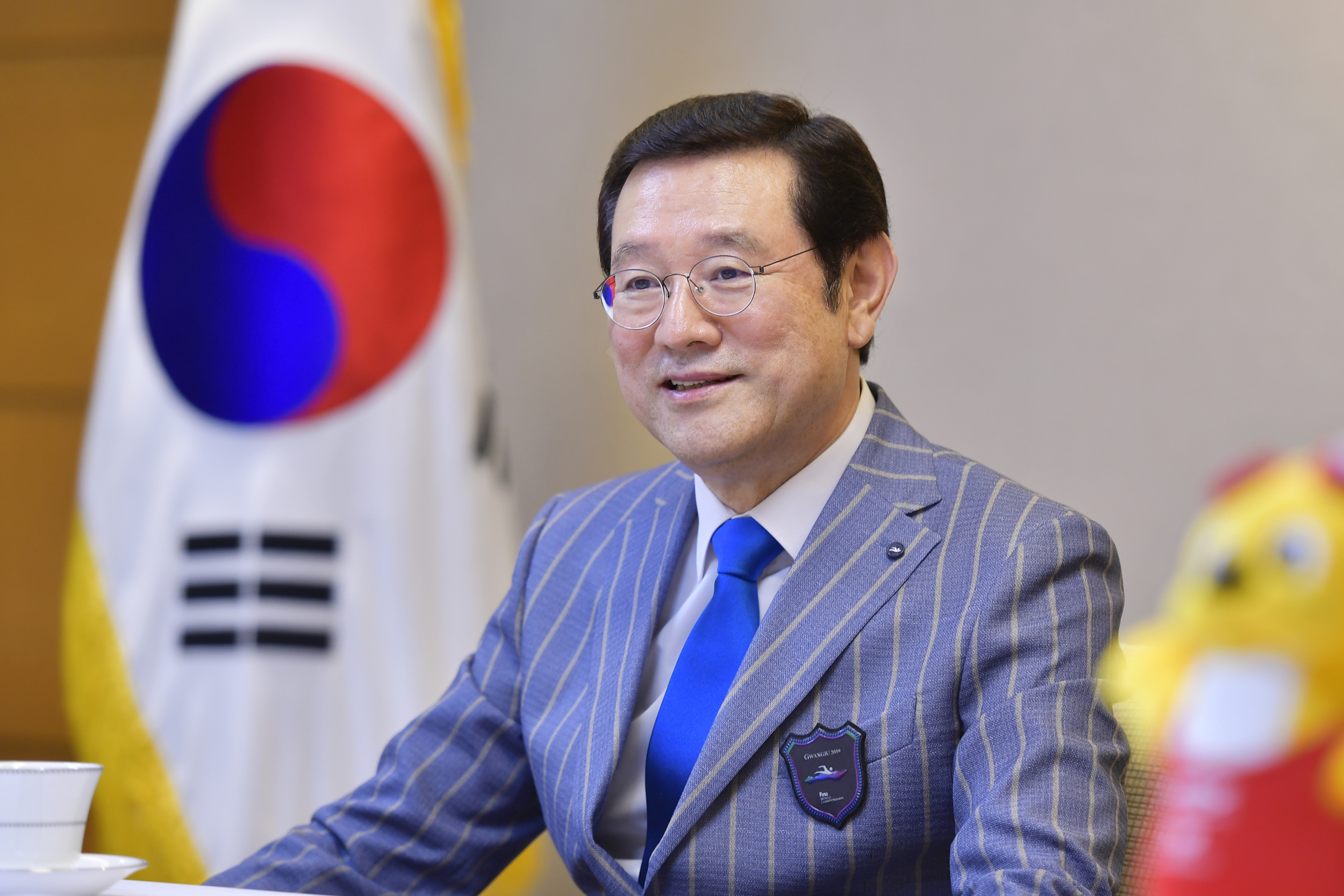One Year of Innovation for a Three-Year Leap into the Future: Anniversary of Gwangju Mayor Lee Yong-sup’s First Year in Office
Provided by the Gwangju Metropolitan City Hall.
On June 26 at Gwangju City Hall, Mayor Lee Yong-sup held an official press conference providing a report on his first year of work in office as well as his plan for the remaining three years of duty.
In particular, Mayor Lee counted among his three top achievements concluding a contract for investment in automobile factories, building the city’s second subway line as a result of success with his model of governance, and laying the foundation for Gwangju to become a leading city in the fourth industrial revolution in terms of the future employment and livelihood of its citizenry.
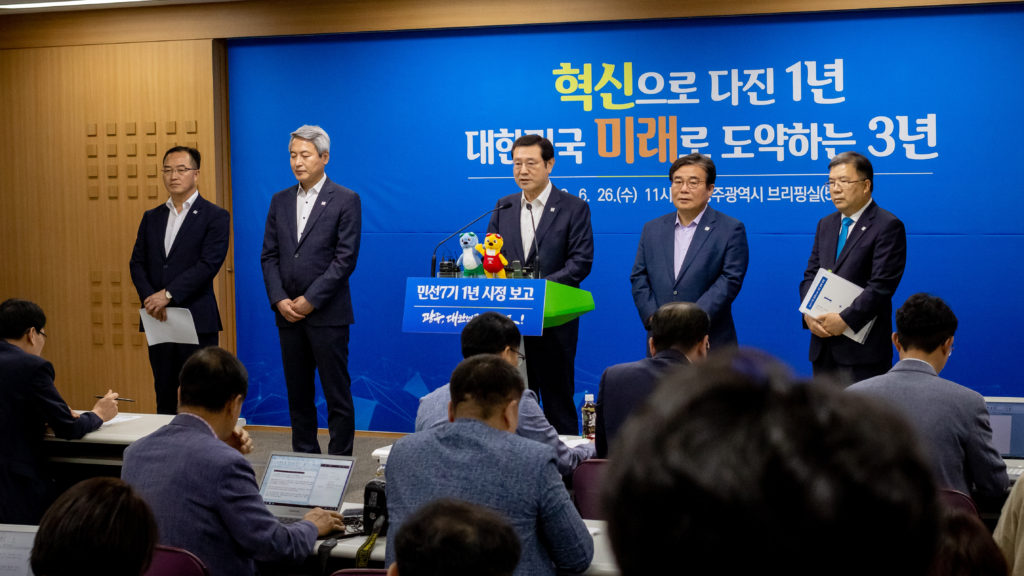
Mayor Lee said that during the past year, work has been difficult and there have been many sleepless nights, but that the time has also been very rewarding as he has been able to contribute to his hometown. For the development of Gwangju, he realized that he needed to take a new path through innovation.
The Mayor continued by saying, “Therefore, as soon as I took up my post, I suggested a vision of Gwangju (‘Gwangju, to the Future of Korea’), the goal of the administration (‘A Righteous and Affluent Gwangju’), the two major methods of policy implementation (‘Finding the True Color of Gwangju, Creating Better Employment Opportunities’), and the three major values of administrative policy (‘Innovation, Communication, and Integrity’).” “Based on the policy of creating employment opportunities,” the mayor added, “I reformed the administrative policy and organizational culture. With the attitude of ‘The Answer Is at the Source,’ I communicated with the citizens of Gwangju and closely gained their trust in the administration, bringing their active participation into the administration.”
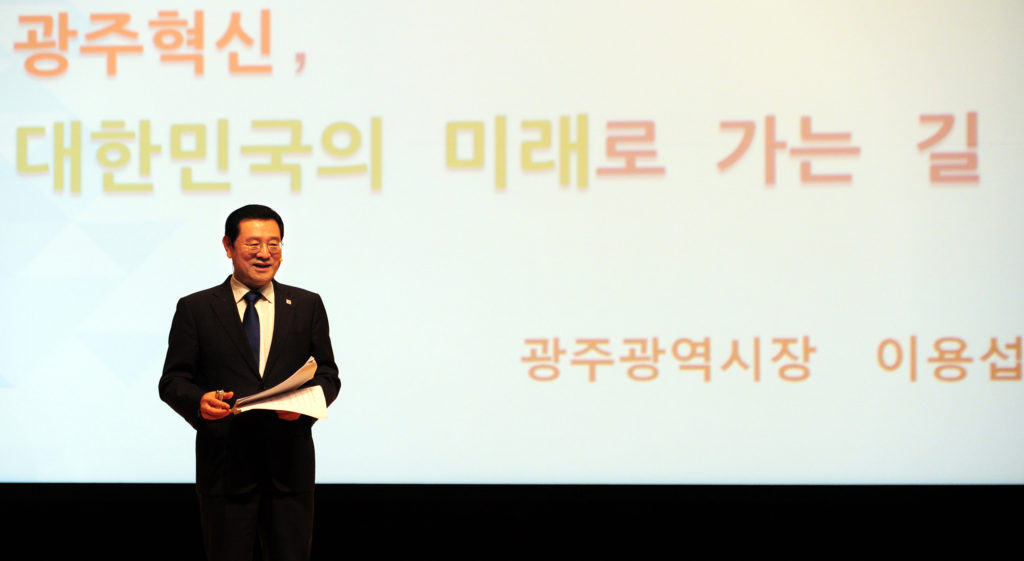
Mayor Lee emphasized, “During my first year in office, my administration has succeeded in resolving old matters that had been on hold for several years. Gwangju is slowly being transformed into a leading city of the fourth industrial revolution.”
To conclude, the mayor said that for the remaining three years, based on a hundred achievements in the six fields of innovation through the trust of the citizens of Gwangju, he will promote ten key policies to strengthen the city, so that the future of Gwangju is the future of the Republic of Korea.
Achievements of the First Year Through Innovation
First, Gwangju-compatible job creation, a unique employment model led by the local government in integrating society through the input of labor and management, was achieved. As a first example of this, the historic achievement of building a car factory with domestic capital for the first time in Korea in 23 years has been accomplished.
Once the automobile factories and parts factories are in place, more than 12,000 jobs will be created in Gwangju, and this will be an opportunity to strengthen competitiveness by reinvigorating the current Korean economy of “high cost and low efficiency.”
In addition, the reshoring effect on overseas companies that have been reluctant to invest in Korea in recent years due to high wages and labor disputes will create domestic investments by overseas manufacturing industries.
As planned, the mayor intends to begin construction of an automobile plant in the second half of 2019 and for it to begin mass production in 2021.
Second, the launch of construction of Gwangju’s Subway Line No. 2, which had been halted for 16 years, through fair and transparent public participation. This can be considered as a new chapter in grassroots democracy and as a success story in that we have resolved long-standing disagreements in the region through dialogue and compromise. Especially, it is considered a model example of considering public opinion, including opposing and minority opinions, to arrive at a consensus. This process has been recognized academically and has been awarded the Korean Policy Award.
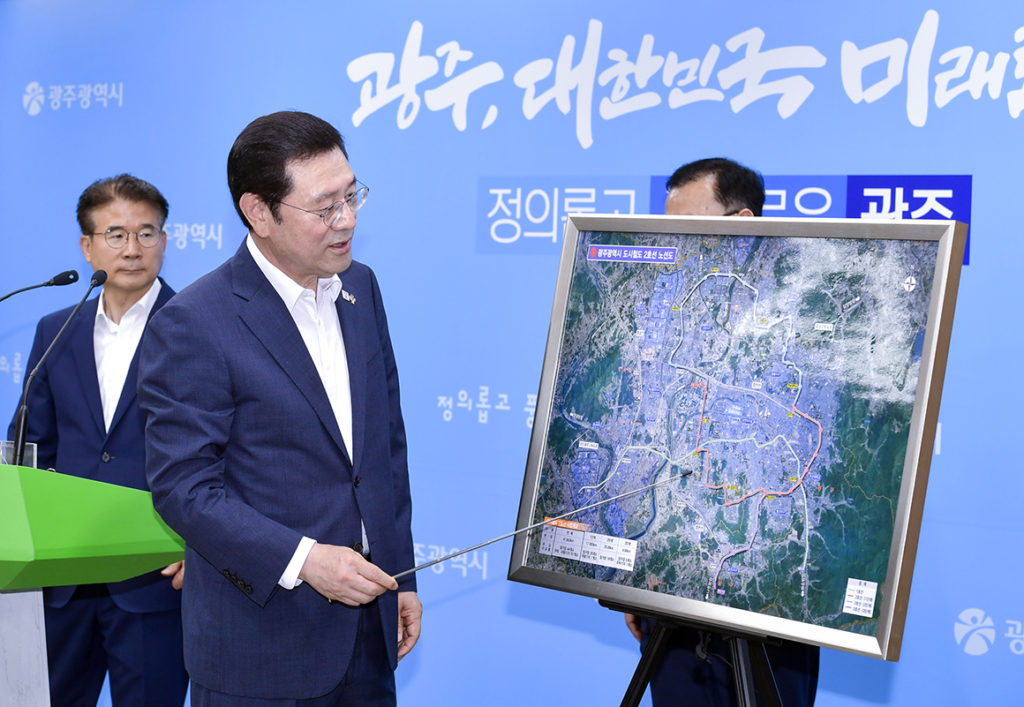
As the administrative procedures of the central government were finalized with the approval of the project by the Ministry of Land, Infrastructure, and Transport on June 13, construction will start in earnest after the FINA World Swimming Championships, and the first section of the subway will be opened in 2023 as planned.
Third, Gwangju has been transformed into a leading city of the fourth industrial revolution in compliance with the three strategic investment areas of President Moon’s administration: artificial intelligence (AI), the hydrogen-based economy, and big data industry.
Gwangju is pushing ahead on the largest AI-centered industrial complex construction project in Korea. This AI-centered research and development project will change the country’s future industrial landscape. It has been selected to receive a waiver from further evaluation in the government’s preliminary feasibility study.
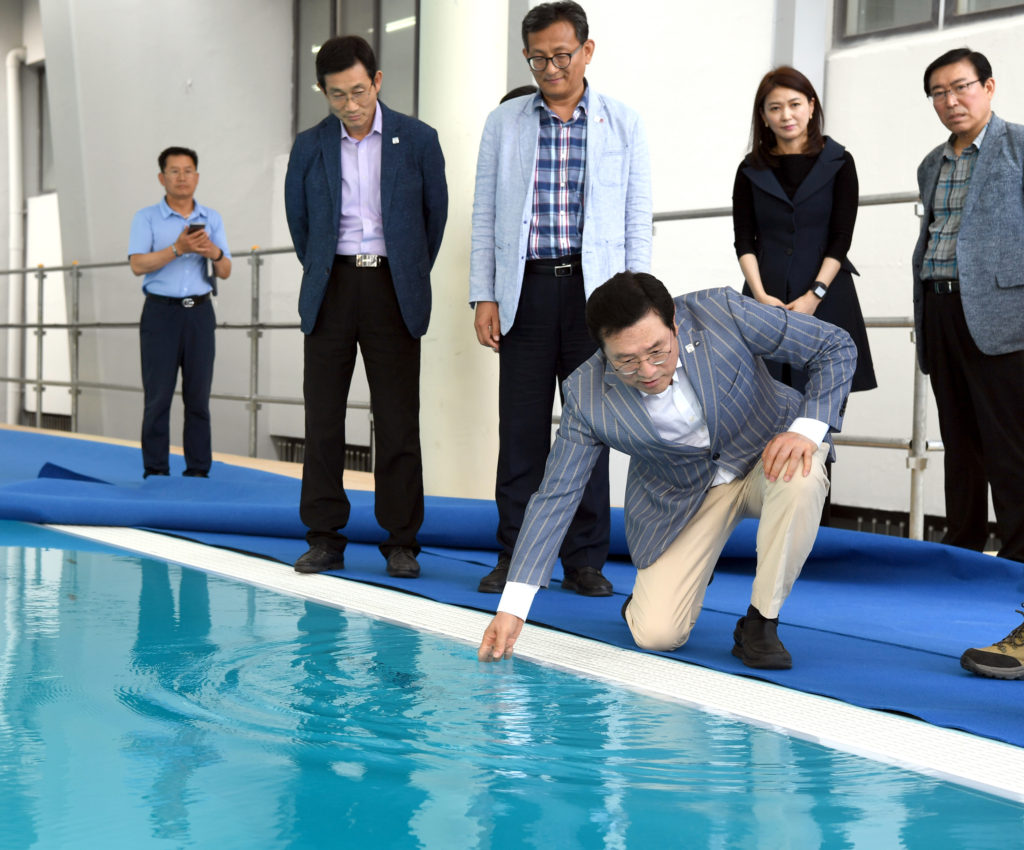
In addition, in the future the employment and livelihood sectors will benefit from attraction to Gwangju of the only eco-friendly automobile parts certification center in Korea, the establishment of a branch of the “energy valley” electric research institute, the opening of Korea’s first hydrogen fusion energy demonstration center, the establishment of a hydrogen-fueled electric power plant, and the eco-friendly air industry with LG Electronics, which are rapidly being reorganized.
Fourth, with my inauguration, “Better Job Creation” was instituted as a priority task for the municipal administration, and the municipal government was reorganized as a whole.
This reorganization consisted of the establishment of an employment committee under the direct control of the mayor, the establishment of a four-year roadmap for employment policies, the expansion and reorganization of the Bureau of Employment Promotion to the Office of Employment Promotion, the strengthening of the employment impact assessment, and the implementation of a job performance evaluation system for all departments.
Fifth, massive expansion of cultural tourism infrastructure to enhance the cultural competitiveness of Gwangju. Gwangju is the first municipal organization to open a comprehensive cultural administration by establishing the position of culture and economy deputy mayor, and establishing a four-year vision for its cultural policy.
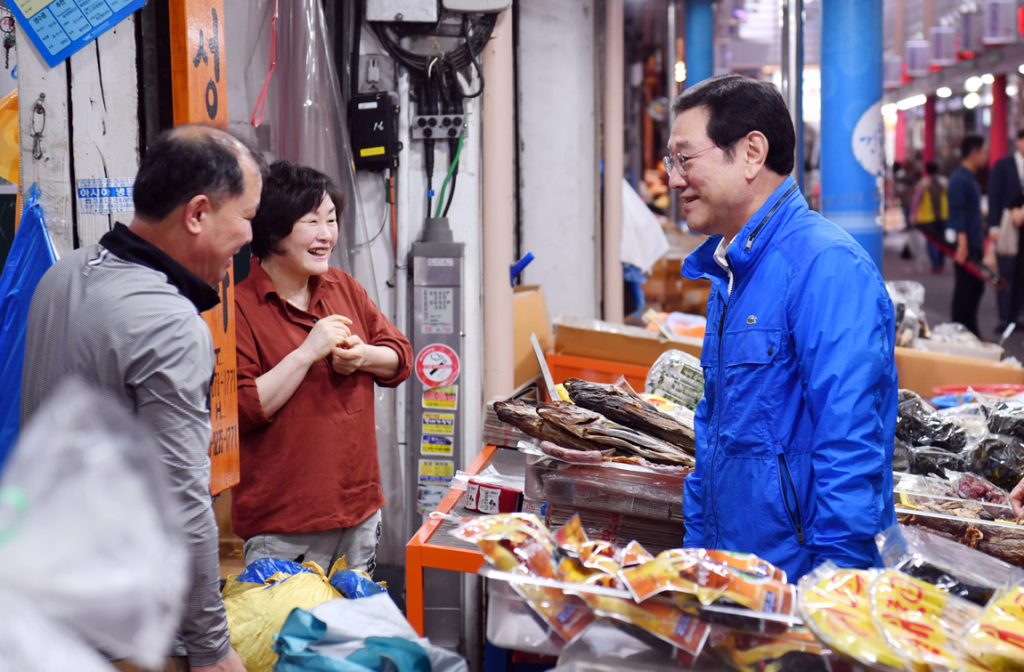
We have greatly expanded the infrastructure of the culture tourism industry of Gwangju through the development of foods representative of Gwangju, stories and performances expressing the charm of Gwangju, the Gwangju City Tour as a representative tourism product, the designation of the Kim Daejung Convention Center as the center for international meetings, Jeollanam-do duty-free shops, and e-sports stadiums.
Sixth, Gwangju is transforming itself from a drab, gray city into a city of art and design through the introduction of civilian experts in architecture participating in public administration. During the past year, eleven areas have been selected for city renewal projects, including Gwangju Station and Baekun Plaza, and about 1.2 trillion won (national provision: 91.8 billion won) has been made to transform the city. Gwangju-Songjeong Station is also being developed through the KTX Leading Investment District feasibility assessment, allowing the city to pass through a gateway into a realm that is distinctly Gwangju. In addition, the Gwangju Stream’s Arirang Cultural Waterway Project, in which people coexist with nature, is being promoted in earnest as well.
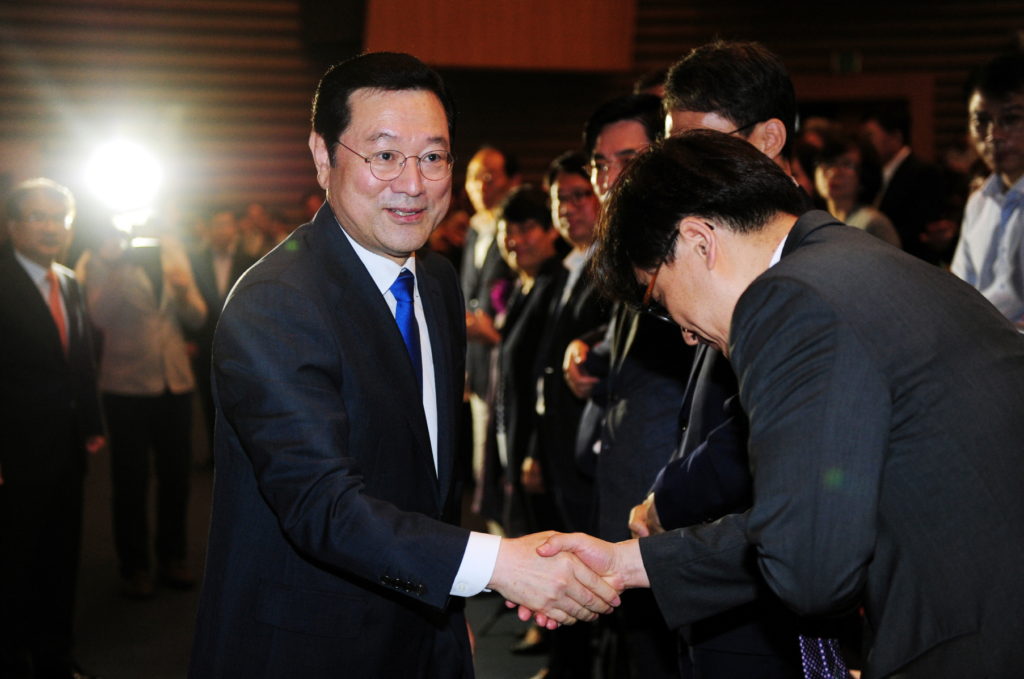
Seventh, due to the construction of the nation’s first 5G-based smart disaster management platform and the 3–3–3 civilian safety movement, citizen safety was given top priority and the Presidential Citation was awarded in the disaster safety field evaluation. The elimination of deadly traffic accidents involving children and a decrease in the traffic accident death rate have been achieved, making the city the safest in the country.
Eighth, through customized welfare and a community of sharing and solidarity, a happy Gwangju without isolation or discrimination is being created.
The municipal administration is building a welfare safety net by eliminating welfare blind spots and implementing the following: expanding volunteer support for the low socioeconomic-status working class, implementing a basic livelihood security system, expanding job opportunities for the elderly by 4,000 or more, providing housing projects for supporting the independent living of people with development disabilities, expanding the provision of customized welfare, and mobilizing a group of 1,798 volunteers to identify local families in crisis. Also, the administration has laid a safe foundation for those with dementia by setting up district-centered dementia safe centers and opening a cooperating research center of the Korea Brain Research Institute.
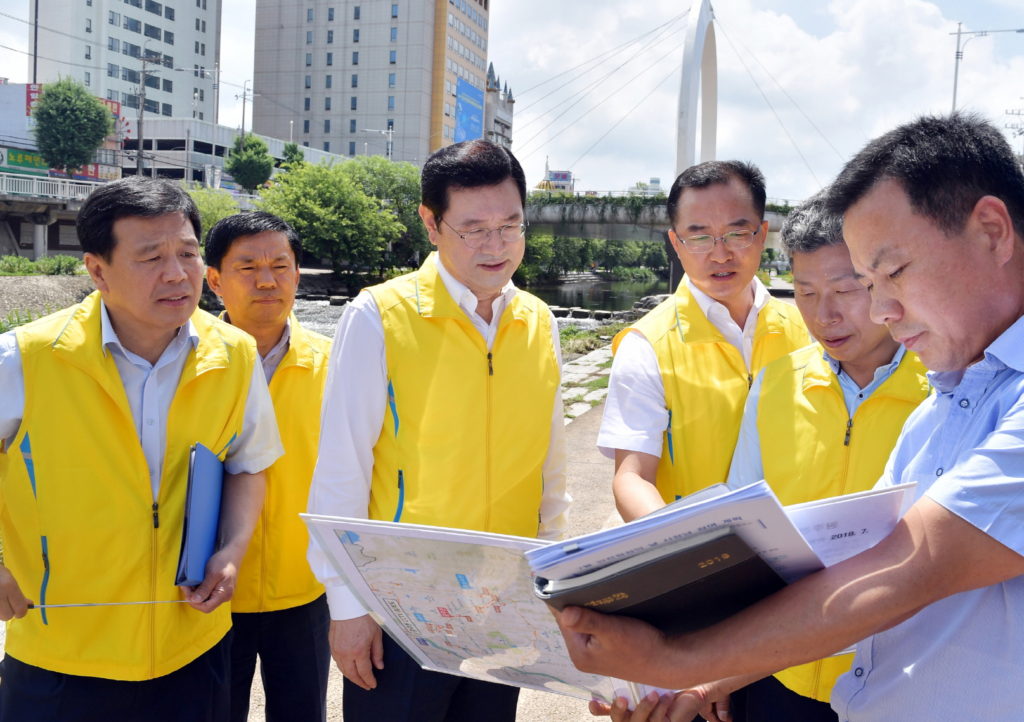
In addition, Gwangju has become the leading city in volunteerism by setting up an online volunteer platform for the first time in the nation’s history. The mutual growth of both labor and management and the partnership between Gwangju and Daegu have provided a good model for regional alliances.
Ninth, through innovation and communication, the municipal administration has been redesigned and reformed for job creation and the creation of a distinctive Gwangju. This has been done by establishing the Committee for Citizens’ Rights and the promotion of the Committee for Gwangju Innovation, through the vitalization of the local economy, through the reinforcement of “on-site administration” (18 on-site inspection tours), through an online human recourses management system for voluntary transfer, by introducing performance-related planning, and by starting the monthly award for best civil servant. These have helped expand the cooperative culture of emphasizing work and performance.
Tenth, the immense effort to hold a successful 18th FINA World Championships in Gwangju, which began on July 12, has resulted in the highest number of participating countries (193) in the history of the event.
Translated by Min Park and Karina Prananto
Photographs courtesy of Gwangju Metropolitan City Hall







